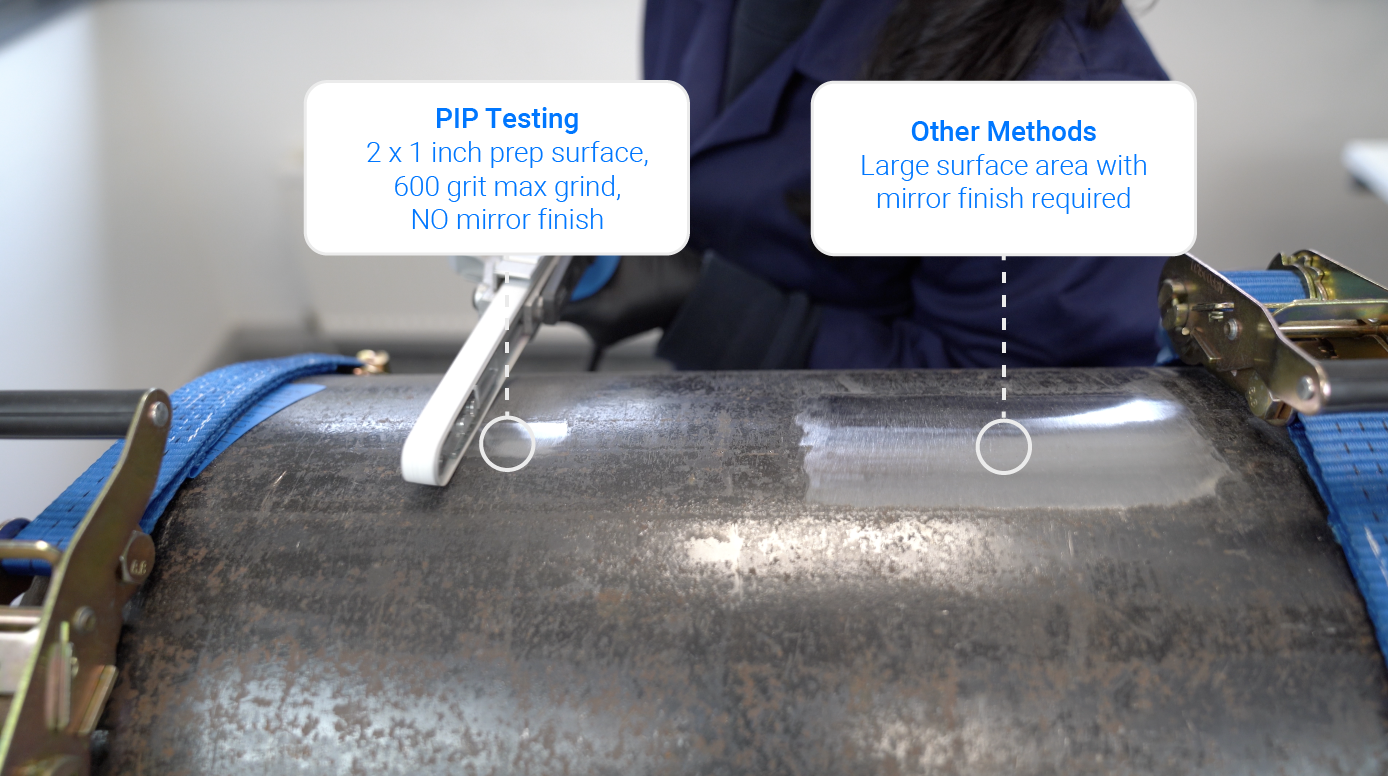Out in the ditch, surface preparation is one of the most important parts of ensuring reliable, repeatable data during non-destructive evaluation (NDE) of pipelines. However, it’s often a complex and time-consuming process. The large surface area requirements or stringent finish mandates, such as a mirror finish, mean more time in the ditch before testing even begins. If these requirements aren’t adequately met, the result is faulty test data and a need for re-testing, further extending time in the field.
By Dr Jimmy Campbell, CTO of Plastometrex
In contrast to this, the PLX-Portable has been engineered to obtain accurate, reliable results with a simple and straightforward surface preparation. Designed in consultation with asset integrity service providers including ROSEN, Mistras, Acuren, DNV, RSI pipelines, and Element Materials Technology, the PLX-Portable is built to extract the highest-quality data from the smallest surface area possible. Its automated surface preparation checks ensure that a minimum preparation standard is met, eliminating the risk of re-testing. With hardware and software working in tandem, the PLX-Portable gives inspection crews complete confidence in the data they collect.
Surface Preparation for the PLX-Portable
To verify the surface preparation requirements, extensive testing and validation work was carried out on a large collection of vintage pipeline steels. An initial coarse grind removes the outer coating on the pipe, after which two progressively more fine grindings (concluding with 600-grit paper) are recommended. To carry out 5 tests in a quadrant, as required by PHMSA's Mega Rule, the PLX-Portable only requires preparation of an area approximately 2 inches by 1 inch. From start to finish, this process can be completed by a skilled technician in less than 15 minutes.
Following indentation, the PLX-Portable measures the surface profile using an optical profilometer. To achieve consistent and repeatable results, the pipe’s surface must be sufficiently prepared, however, further grinding and polishing beyond a 600-grit has little to no effect on the results obtained.

Compared to other NDE technologies that determine the yield and tensile strength of pipelines, the PLX-Portable requires a smaller area for testing and fewer grinding steps, which can reduce the time taken for surface preparation by up to 90%. This, in turn, allows crews to access more pipe joints in a single day, thereby reducing the associated costs of in-field testing.
Software Checks
Out in the field, inspection teams could face any number of challenges, from bad weather to deeply pitted vintage pipeline surfaces. This is why every aspect of the PLX-Portable has been designed with the end user in mind. Not only has surface preparation been streamlined, but the software has been designed with built-in safety checks to help prevent user error.
The bespoke PTW Software guides the user through every step of the testing process. Automated surface checks assess the curvature, surface roughness, and detect any facets on the pipe’s surface before allowing a test to proceed.
Upon completion of these checks, the PTW software’s traffic light system clearly indicates the next steps: a green light to means users can proceed, while a red light indicates further preparation is required. If issues are detected, the software provides step-by-step notifications, guiding the technician through corrective actions before advancing to testing. This ensures that high-quality data is collected every time, giving technicians peace of mind.
All testing data is available immediately in the ditch, as well as remotely via the Cloud, so inspection teams can make on-the-ground decisions regarding further testing. This, combined with automated surface checks, significantly reduces the risk of costly re-testing. Avoiding re-tests due to poor data not only saves time and resources but also protects a company’s reputation, reinforcing confidence in the accuracy of pipeline assessments.
The PLX-Portable redefines surface preparation for pipeline testing, removing unnecessary complexity while ensuring consistent, high-quality data. By reducing preparation time, minimizing human error through automated software checks, and eliminating re-tests, the PLX-Portable empowers inspection teams to work faster, smarter, and with greater confidence. For pipeline integrity specialists, this means higher efficiency, lower costs, and more reliable data every time.





